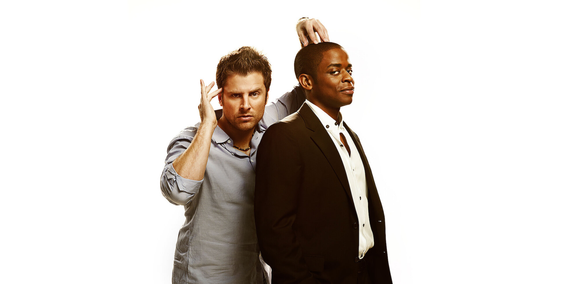The Messy Truth About Being a Therapist
(From Someone Just Starting Out)
A candid, first-year reflection on uncertainty, boundaries, silence, and presence in the therapy room.
When I tell people I'm a therapist, the reactions are almost predictable. First comes the wide-eyed admiration: "Wow, you must be so sorted!" Then a slightly cautious look, as if they now have to be on their best behaviour. The number of times I've been asked, "Tell me something about myself," is honestly concerning. Once, I was explicitly asked not to "analyse" someone. I admit there's a part of me that can't help reading between the lines or itching to ask deeper questions—it comes with the job. But mostly? We therapists are just trying to be human.
What Was I Actually Supposed to Be?
When I first got my degree, I imagined myself with a calm, soothing voice, neat handwriting, and profound questions that magically unlocked someone's soul. My therapy office would smell faintly of herbal tea and wisdom. The reality? Some days, my brain is an anxious group chat with everyone typing together. Did I ask the right question just now? What if they don't feel safe with me? Okay, deep breaths… just keep driving this session. Therapists don't have it all figured out.
Especially not new therapists.
Especially not this one.
Was that insightful or just obvious? Did they notice I zoned out for 0.5 seconds? Why is my stomach growling so loudly?
Some days I wake up thinking, Wow, I'm a therapist now. Other days it's more like, Wow, I'm a scam. The stereotype is clear: therapists are calm, endlessly patient, insightful, never sad, never angry, and definitely never a mess. But we are. We get heartbroken, we have bad days, we argue with our parents, and we (most certainly) doom-scroll Instagram at 2 a.m.
But How Can You Help Me If You're Broken Too?
Clients sometimes wonder, How can you help me if you're still figuring yourself out? My answer? That's exactly why I can help. Being "a little messed up" is the universal human condition—therapists included. The difference is we've chosen to make a career out of sitting with that mess. Not because we're immune to it, but because we've been trained to hold it without letting it spill over into someone else's healing.
Going through our own mess gives us a blueprint for yours and allows us to pick up on its intricacies. We're more like co-travelers who've been trained to read the confusing road signs, point out potholes, and occasionally remind you to stop driving into the same ditch. A time when I was reading the road signs looked like recognizing that a client's constant insecurity about her boyfriend wasn't really about him at all—it was about her deeper need for structure, clarity, and control in relationships. Another time, it meant spotting that a client's impulse to detach whenever someone leaned on them too much came from an old expectation of being the mature and responsible one. These moments might look small, but they often illuminate the bigger forces driving someone's behavior.
Why Do I Sound Like a Textbook?
There are moments I feel like I'm just "playing therapist"—delivering textbook-approved responses while wondering if I'm actually helping or just sounding like I'm helping. The language I learned in class is still settling into my bones. I once told a client, "This seems to be a maladaptive coping mechanism." The client was clearly lost, so I quickly reframed it: "It seems like you've been handling stress in ways that don't work for you. Let's talk about what else might help." They visibly relaxed, and the dialogue became easier.
My "therapist voice" and my "real voice" are still learning to live together. I'm hyper-aware of every word I say, terrified of saying the "wrong" thing, almost scanning their facial expressions like I'm reading exam results: Did they smile? Did they relax? Did I make them feel safe? And if they don't open up right away, my brain spirals: Oh no… they hate me, I'm terrible at this.
The first few sessions felt like walking on eggshells. One wrong step and straight into "Oh God, did I just ruin someone's life?" territory. I'd overthink everything: Did I phrase that right? Was that too direct? Did I just project my own perspective? Is there a secret "therapist smile" they forgot to teach us?
What If I Have Nothing Left to Say?
There's this silent panic when a client says, "I don't know," and I realize… maybe neither do I. At first, those silences felt suffocating—like I had to jump in and do something. Now I'm learning that not knowing is okay, and often it's the best place to start. Sitting in that awkwardness without rushing to fill the space is sometimes the most powerful thing we can do.
This is where therapy differs from the world of advice. Sometimes we're translators—taking your jumbled "ugh, I don't know what's wrong" and turning it into something that makes sense. Sometimes we're mirrors—showing you the bits of yourself you've been ignoring or the ones you've been hiding to feel safe.
The fear of "what if I have nothing to say?" creeps up more often than I'd like to admit. At first, it felt like a career-ending burden—aren't therapists supposed to always know the right thing to say? But I've started learning, slowly and painfully, that sometimes not saying anything is the point. Maybe sitting in that silence is my way of holding space, of letting things breathe, of giving people time to process. Almost like letting things simmer instead of throwing in more ingredients. Silence doesn't mean I'm not "therapist" enough—it just means I'm human enough to not fill the air with unnecessary noise.
This isn't a TED Talk. It's not about delivering impressively deep one-liners or perfect wisdom. It's about showing up—messy, human, and willing to sit in the uncertainty.
How Much of Me Can Actually Be in This Room?
And yes, there are relatable stories—breakups, body image, family drama—that I'm still figuring out in my own life. The temptation to say "Ugh, SAME" is real. It's a constant balancing act of checking my impulses, resisting the urge to over-identify or advise, holding space for their story, and keeping mine in my back pocket.
This brings up the eternal question: how much of "me" can I bring into the room? Can I crack a joke? Can I say, "OMG, LEAVE him"? Can I use "lowkey" or "it's giving" without sounding unprofessional? I remember one session where a client was venting about awful dates, and I honestly had to stop myself from joining in with my own stories. I want to be authentic, but I also want to look like I have it together—and finding that balance feels like learning to walk in stilettos on Mumbai's pothole-ridden roads.
Is Learning the Weirdest Part?
The weirdest part of this job is being in that middle ground—still building my confidence while already holding space for others. It's like learning to drive while also giving someone else a lift. You're figuring out your own skills, boundaries, and confidence while a human being in your care is depending on you to be present, attentive, and steady. Sometimes that means sitting with a client's heartbreak while quietly navigating my own breakup.
Being a therapist doesn't put life on pause; it means holding space for others even while life is happening to me. The emotional weight gets heavy. Sitting across from someone and witnessing their deepest pain—not my healing to carry, but it pierces deep into me anyway. You want to make it better so badly, and yet you have to accept that you're not the magic cure. You're just the companion on their road, not the driver.
But then there are these quiet moments—when a client exhales deeply or says, "I've never said this out loud before"—that remind me maybe I'm not supposed to have mastered it yet. Maybe the awkwardness, the learning curve, the ‘walk on eggshells’ is all part of it.
Sometimes I desperately want to take my clients' pain away, and the helplessness of knowing I can't is humbling. I catch myself overcompensating, trying harder, overthinking after sessions: Did I miss something? Should I have offered more hope?
Recently, when I was referred a client with a difficult history, my first instinct was to ask a colleague, "How will I help them?" Her answer stayed with me: "What does help mean? Why do you need to? Just give them space to be heard, to cry, to heal—and there's nothing more you need to do." We're often so focused on making change happen, but maybe our definition of change comes from our own projection.
Some moments, I feel the click—like something landed. Other moments, I'm sure I've made zero sense. But I'm realizing it's all about being real in the moment. And if that means sometimes I'm the therapist who overthinks her clients' body language, fears running out of things to say, or debates whether "vibes" is a professional word… then so be it.
I'd rather be a human therapist than a perfect one.
What’s The Stuff They Don't Teach You?
What they never teach you in training is about no-shows, awkward goodbyes, or the fact that yes, clients can ghost you. You find yourself unexpectedly attached to them, quietly rooting for them, tying little pieces of your own self-worth to their growth. And sometimes, your heart forgets the whole "professional boundaries" thing—it just wants to see them happy.
In the first few months, I caught myself equating my professional and personal competence with my clients' behaviour. I was judging how good I am—both as a therapist and as a person—based on how my clients behaved or progressed. I was tying my own self-worth to their actions, instead of seeing my work as separate from their choices. If they opened up, I'd think, Yes! I'm doing great. If they didn't, I'd replay every moment of the session like IPL highlights, looking for where I "messed up." Sometimes I'd find myself analyzing their tone and body language, basically searching for any sign that they liked me. Which, in theory, isn't my job. But in reality? You want to be that safe person for them. You need to know they feel comfortable around you.
I've had to remind myself: my job isn't to be liked, it's to be helpful. Our role is less about making you "happy" and more about making you okay with not being okay. To help people befriend their pain, not erase it.
Of course, seeing my clients struggle to feel better fills me with guilt. They're trusting me with their messiest, most vulnerable parts, and while their healing isn't mine to carry fully, I'd be lying if I said I don't feel it in my chest. That little voice is always whispering, Please let them feel safe with me. Please let them open up. That voice desperately wants to be the kind of therapist they need.
So yeah, the whole "put-together therapist" thing? Pure myth.
Whoever started that has clearly never met me frantically eating Maggi between sessions or snoozing my alarm 20 times before dragging myself out of bed. That pressure to be perfect doesn't help anyone. It sends the message that therapists are flawless beings who've unlocked all the secrets to life. In reality, I don't have it all figured out. I get anger outbursts (my best friend can confirm), overthink texts, need reassurance, cry over silly things, and consider Bollywood rom-coms legitimate self-care. But I can still sit with someone in their darkest moments, hold space without judgment, and care deeply—messy, imperfect, but real.
The best sessions I've had, both as a client and a therapist, weren't performances. Sure, we have our fancy theories, frameworks, and ethics, but at the end of the day, it's just two humans in a room, trying to figure something together—one spilling their mess, the other making sure it's safe to do so. Some days it's breakthroughs and deep insights; other days it's tissues and maybe a shared laugh at how absurd life can be.
My life is just as beautifully chaotic as anyone else's. There are days I'm not sure if my coping mechanisms are healthy or just really aesthetic avoidance. (Do I even follow the advice I give in sessions? Or am I just saying what I'd want to hear if I were on the other side of the couch?) I've had moments where something I thought was profound landed like a flat soda… and that's okay. Because maybe what they need isn't a flawless, all-knowing expert, but a real human who can say, "I'm not going anywhere."
Where Do I Go From Here?
No, I don't have it all figured out. I might never—and maybe that's exactly the point. Therapy, at its core, isn't about being perfect. It's about offering your unconditional presence, proving you don't have to have it all together to deserve care—or to offer it. It's about sitting beside someone in their mess, helping them build the muscle to sit with their feelings without running away from them, or at least running away a little less while quietly holding the truth that your own mess is right there too.
And that? I can do.
Make sense of the messy with the Adulting Journal
A therapist-designed journal to sort the swirl—gentle prompts, space to breathe, and a ritual for showing up to your real life between sessions.
Adulting Journal →







